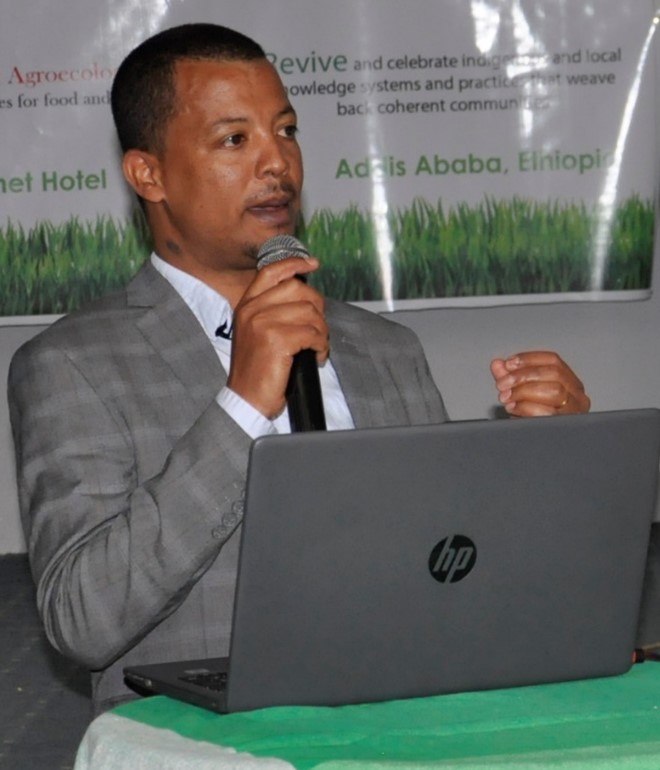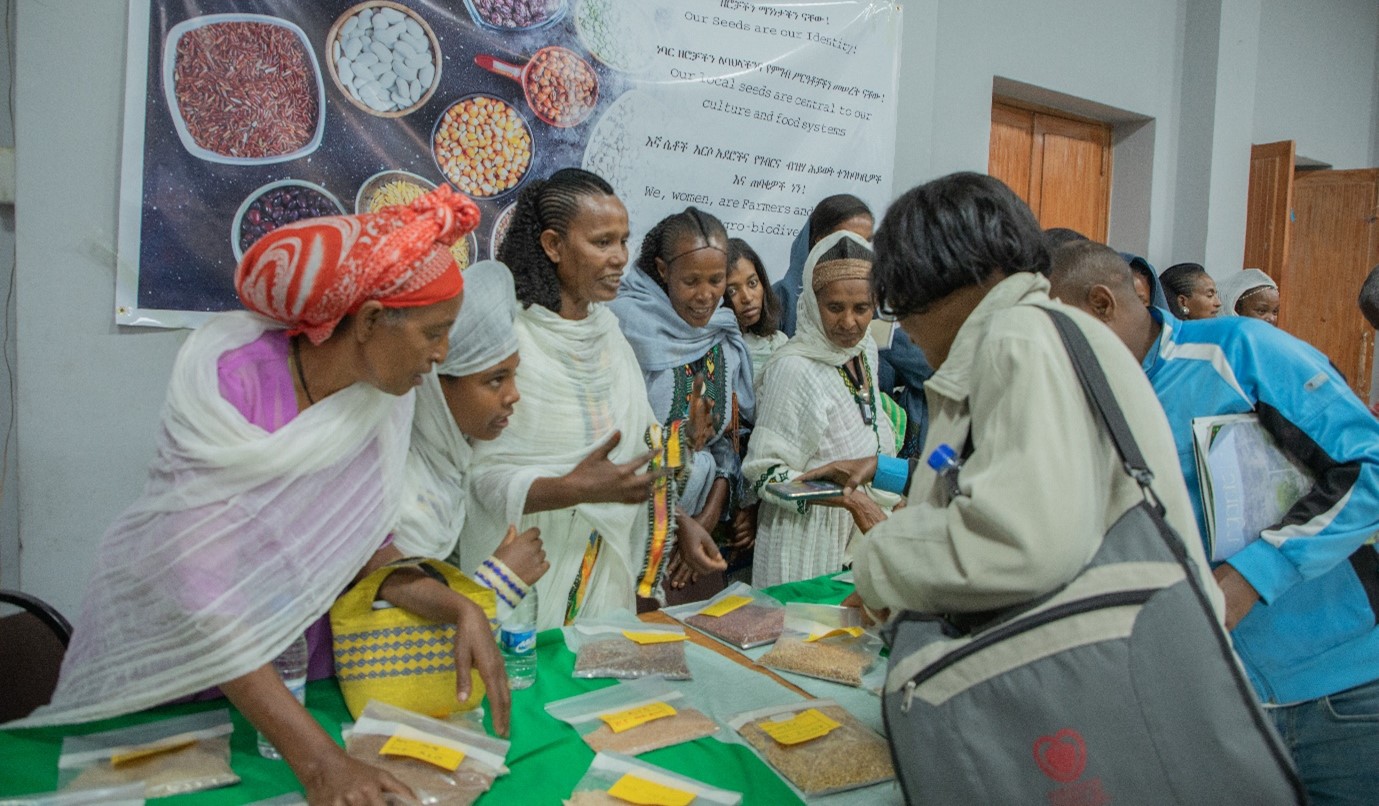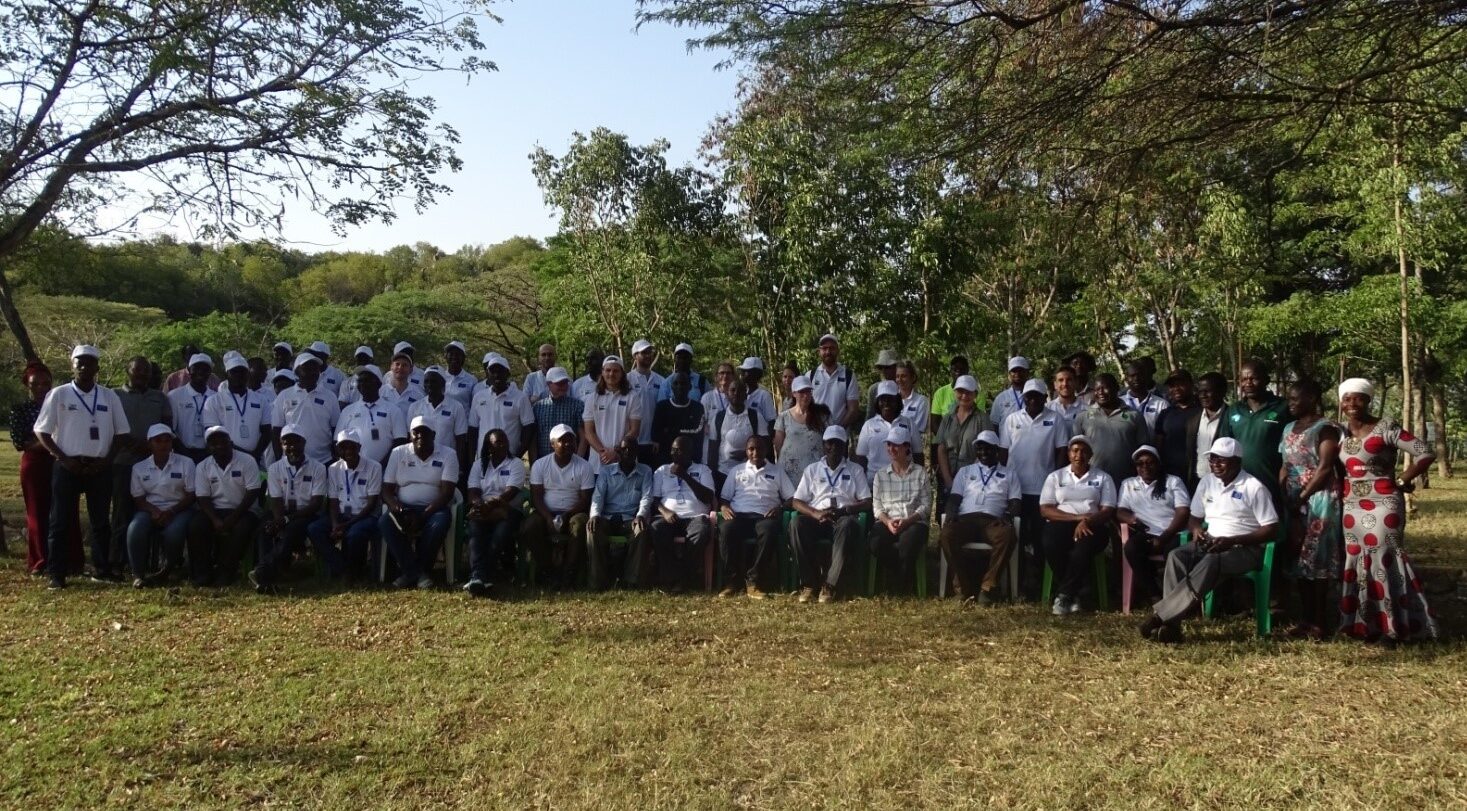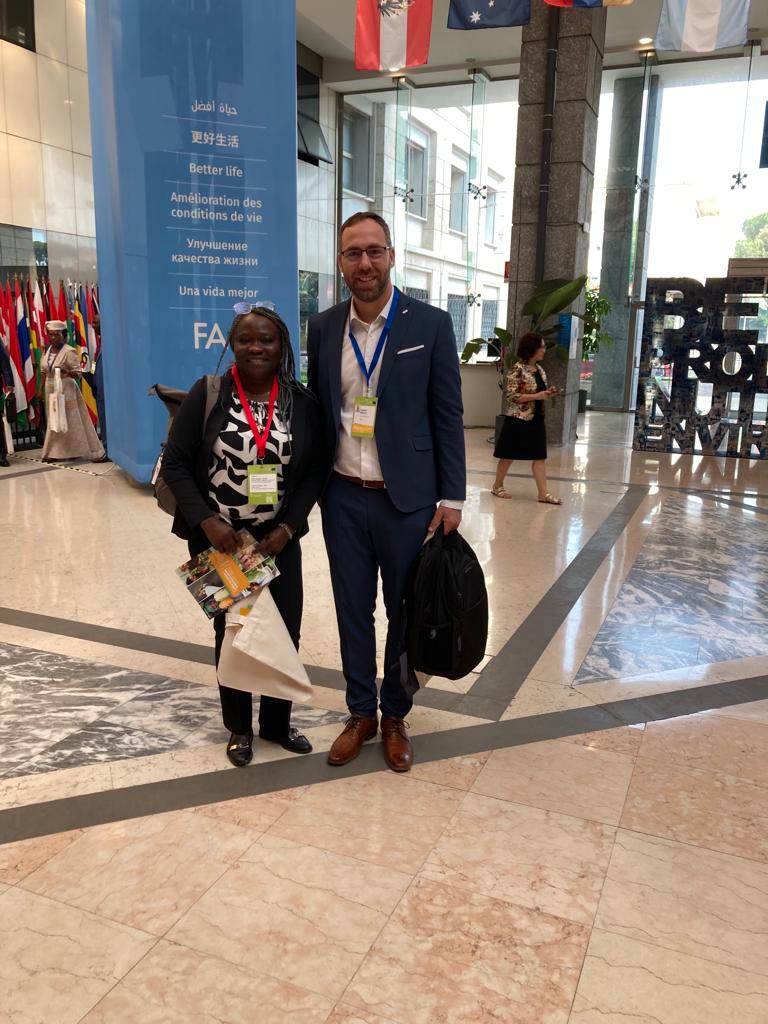Name of the event: National Ecological Organic Agriculture (EOA) Platform Meeting and Seed Fair
Date: The meeting took place on 28 December 2023
Venue: The meeting, organized by the Institute for Sustainable Development (ISD), took place at the Guenet Hotel, in Addis Ababa, Ethiopia. ISD organized the EOA platform meeting by combining paper presentations of selected agroecology practices and knowledge with food, seed and herbal medicine fair by engaging men, women and youth, mainly farmers, who are engaged in different EOA projects following agroecological production principles.
The workshop targeted EOA national platform members from Addis Ababa, Oromia, Central Ethiopia, Amhara and Southern Nations Nationalities and Peoples Regions. The UPSCALE project, along with the farmers, local partners and stakeholders of ISD’s Rural Women Cultivating Change (RWCC), African Biodiversity Network (ABN) supported both participants and presenters of the ‘EOA Platform Meeting and Seed Fair 2023’.
The workshop aimed to share the best experiences of agroecology actors with wider audiences mobilized from government, private, community representatives and the media with an emphasis on enhancing EOA visibility at the national level. It sought to increase awareness and demonstrate the value of farmers-managed seeds, vegetables produced by organic principles and indigenous knowledge on the use of herbal medicines. The workshop was also a platform to promote the impact of applying Push-Pull Technology (PPT) for intensifying agricultural productivity in stem borer and Striga weed infestation areas.
During the EOA Platform Meeting and Seed Fair 2023, several presentations were shared and discussed such as “Agroecology: A Pathway towards Sustainable Food Systems – a case from Ethiopia,” “Recognizing the Role of Women Farmers Towards Strengthening Farmers’ Seed Systems and Ensuring food security,” “Best practices on plantation and utilization of Acacia Mearnsii in Awie Zone,” “Cultivating food sovereignty through enhancing agro-ecological practices of smallholder farmers,” and “UPSCALE: experience in Push-Pull Technology (PPT) for the production of Sorghum and its diversification.”
Ghebremedhin Belay, Executive Director of the Institute for Sustainable Development (ISD), said:
“There is an urgent need for ecological organic agricultural practices to secure sustainable food and combat various challenges faced by our nation. These challenges include insufficient healthy food, declining soil fertility, increased pest and weed infestation, ecological disturbances due to factors like drought and deforestation, biodiversity loss, and human neglect of natural resources. Failure to address these issues not only jeopardizes our own lives but also endangers the future of our children. Fortunately, the global shift towards ecological organic agriculture offers hope for a better future, with success stories emerging from countries like the United States, Argentina, India, China, Spain, Germany, and Uganda. Ethiopia, despite its vast natural resources, still struggles to fully harness the potential of organic agriculture, although recent gains in exports of organic produce like coffee, honey, and sesame seeds show promise. It’s clear that while progress is being made, more concerted efforts are needed to fully leverage Ethiopia’s agricultural potential and address its pressing challenges.”
He also emphasised that the organization is facing challenges in their activities, such as are lack of quality seed, low production and low availability of extension services.
Yenenesh Egu, Lead Executive of Agriculture and Horticulture Extension, Ministry of Agriculture, said:
“In Ethiopia, agriculture has a multitude of roles; it is clear to all of us that it (agriculture) is the foundation of livelihoods. As a result, a comprehensive success in agriculture development is highly expected. Accordingly, it is obvious that we have to enhance our agriculture based on the latest global standards and by keeping ecological balance.”
After all the presentations, our UPSCALE partner Mr Andargachew Detebo from the Institute for Sustainable Development (ISD) presented the Push-Pull Technology to the audience:
“Striga, a parasitic weed infesting maize and sorghum, and stemborers, larvae of moths damaging plant stems, have historically caused substantial yield losses in Ethiopia. Between 2005 and 2010, trials under the Eastern Africa Regional Program for Integrated Pest Management (EAPPIPM) introduced Push-Pull Technology (PPT) to combat these pests, yielding promising results. PPT involves intercropping repellent legumes like Desmodium with sorghum or maize to deter pests (Push), while planting attractive plants like Brachiaria as borders to lure pests away (Pull). Over a decade, PPT not only controlled pests but also improved soil fertility, and water preservation, and contributed to livelihood diversification, food security, and gender empowerment.”
The Institute for Sustainable Development (ISD) spearheaded large-scale adoption and research on PPT in various Ethiopian contexts from 2011 to 2020, resulting in significant yield boosts, pest control, soil health improvements, and empowered farmers. With the UPSCALE project, ISD focuses on promoting PPT for maize and sorghum in specific regions, yet challenges such as low diffusion and uncoordinated incentives persist. Research and policy efforts are crucial for upscaling PPT, identifying optimal practices, enhancing adoption, and ensuring long-term sustainability. Through coordinated funding and institutional support, the government can facilitate the adoption and integration of agroecological strategies like PPT into agricultural policies, promoting resilience and sustainable farming practices in Ethiopia.

Mr Andargachew Detebo, Institute for Sustainable Development (ISD)
After the wrap-up of the presentations and discussions, farmers from North Wollo Zone in the Amhara Region and Holeta in the Oromia Region showcased farmer seed varieties and organic produce that especially demonstrated the role of women from farm to table. The seed fair allowed the workshop participants to appreciate crop diversity which is an essential element to ensure food sovereignty. The participants bought organic vegetables, some of which were cooked and presented for their test at lunch earlier in the day. The seed and organic produce presentations, complemented by a traditional herbal medicine display, intended to transfer local knowledge from generation to generation and between communities presented at the workshop.

Female farmers showcasing farmer seed varieties and explaining how they process and save seed for the following season.



